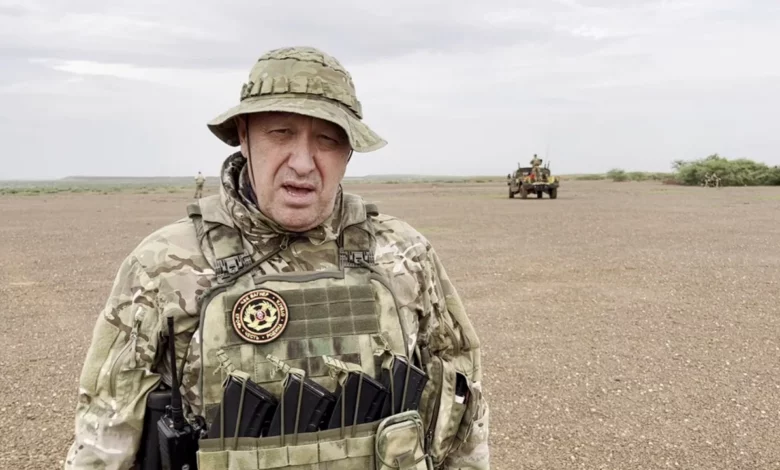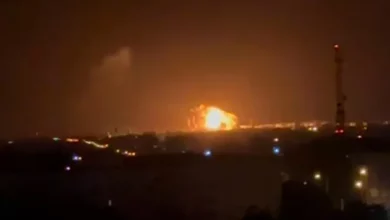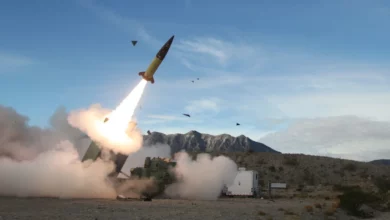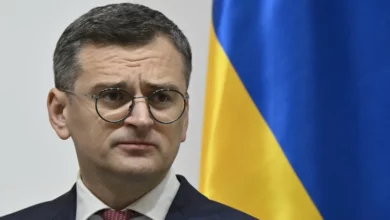
The facts are still only beginning to become clear. On Wednesday afternoon, an Embraer Legacy business jet registered to the Wagner mercenary boss plummeted from the sky, crashing between the villages of Kuzhenkino and Kuzhenkinskoe in Russia’s Tver region. All 10 aboard were killed.
Russia’s state aviation agency said Prigozhin was on board.
But it didn’t take long for theories to start careening around the internet. Was the plane shot down? Or, perhaps, had a bomb been placed on board? And was Prigozhin really dead? Russian arch-propagandist Vladimir Solovyov seemed to suggest as much, implying in a statement on Telegram that reports of the oligarch’s death were premature.
The Ukrainians and their allies, Solovyov insinuated, were “spreading a fake message about the death of Yevgeny Prigozhin” based on a report from Rossiya-24, a Russian state television channel.
Solovyov, who is well known for playing fast and loose with facts, quickly back-pedaled. But the circumstances of the crash, as well as Prigozhin’s open confrontation with the Kremlin in June, seemed ripped from the pages of a second-rate thriller.
After all, in the days following an abortive march on Moscow by his troops, Russian state television revealed Prigozhin’s penchant for wigs, disguises and multiple passports, all found at one of his gangster-chic residences.
And it wouldn’t have been completely out of character for Prigozhin – who ran the notorious “troll farms” involved in meddling in the 2016 presidential election – to troll the world by staging his death. After all, Russian investigative outlets have reported that the Wagner head apparently employed at least one body double.
Lurid stuff, of course, but perhaps not more lurid than Prigozhin’s own performances. This was the man, after all, who made the case for better resources for his fighters in Ukraine by posting gruesome images of their mangled bodies. And his profanity-laced tirades against Russia’s top military brass, whom he accused of being “fat cats”, sealed his reputation as a sort of villain out of central casting.
But such speculation leaves aside the main point. Prigozhin, for all intents and purposes, is no longer a force in Russian politics. Batya – the fatherly moniker some of his men used for him – has left the building.
Who has the motive?
The Investigative Committee, Russia’s top law-enforcement body, has opened a criminal investigation into the crash. The investigation is being conducted under Article 263 of the Criminal Code of the Russian Federation – violation of the rules of safety of movement and operation of air transport.
Having the Investigative Committee running the show is hardly a promising development, at least in terms of transparency in international aviation. After all, the law-enforcement agency has been front and center in efforts to prosecute Russian President Vladimir Putin’s opponents, including opposition leader Alexey Navalny. Awaiting an impartial report from the Investigative Committee is like expecting a Russian state TV host to stop taking talking points from the Kremlin.
Whether or not we learn the real cause of the crash, the investigation now underway does point to an important question: Who would have the motive and means to get rid of Prigozhin and his top lieutenants?
The easy answer – but by no means the only one – is, for many observers, Putin.
The crash of Prigozhin’s plane happened just about two months after Prigozhin and Wagner staged their insurrection, the biggest challenge to Putin’s rule in over two decades.
Just days after the mutiny, a furious Putin made it clear that he viewed the actions of Wagner as a form of treason. While he did not mention Prigozhin by name, he accused “the organizers of the rebellion” of betraying Russia herself.
That’s a serious allegation, but the weeks that followed the Wagner insurrection did not see swift reprisals from the Kremlin.
Wagner fighters were allowed to relocate to neighboring Belarus, under a deal purportedly struck by Belarusian President Alexander Lukashenko. And Prigozhin – while he kept a lower profile – kept popping up in public, glad-handing an African official on the sidelines of a Russia-Africa summit in St. Petersburg and making pronouncements about the coup in Niger.
But Prigozhin, for all his bluster, might have remembered that revenge is a dish best served at least lukewarm, regardless of how many enemies he had.
‘Time of Troubles’
If – and this is still a big if – the Russian state had something to do with the crash of the Embraer, it may heighten the sense that Russia is entering a Смутное время (Time of Troubles), as some commentators darkly suggested during the Wagner mutiny. In Russia, that phrase refers to a period of lawlessness and a violent succession crisis at the start of the seventeenth century.
At minimum, the crash raises the unpleasant memories of the anarchic 1990s, when Russians suffered under a botched and violent transition to a market economy and political assassinations were a routine headline.
Under Putin, defenestration has become a sort of morbid running joke for the tendency of the regime’s opponents to fall from windows. Could this be defenestration by other means?
Mysterious plane crashes also have been a pattern in some high-profile cases in Russian politics.
Russian investigative journalist Artem Borovik died in 2000 shortly after his plane to Kyiv crashed after take-off from Moscow’s Sheremetyevo airport. And General Alexander Lebed – a onetime presidential candidate and regional governor – died in 2002 in a helicopter crash, removing a prominent political contender from the landscape.
So the question of cui bono – who stands to benefit from the death of the Wagner boss – will likely also be on the mind of political observers.
In a perceptive analysis following the abortive Wagner coup, Vanda Felbab-Brown of the Brookings Institution noted that it might be useful for the Kremlin to effectively restructure some of Prigozhin’s activities – or place them under new management.
“Rather than fully liquidating Wagner in Africa and the Middle East, Russian intelligence services will purge Wagner’s structures to weaken affinities to Prigozhin and strengthen ties to the Kremlin,” she wrote.
“Such a restructuring would mimic the seeming preference of Russian President Vladimir Putin with respect to Wagner in Russia and Ukraine – rolling some cadres under the Russian military, disarming others, and allowing others yet to operate in the existing semi-independent format, but under a new leadership and with Prigozhin’s power minimized.”
So to paraphrase, from the Kremlin’s perspective: If Prigozhin is dead, long live the new Prigozhins.




